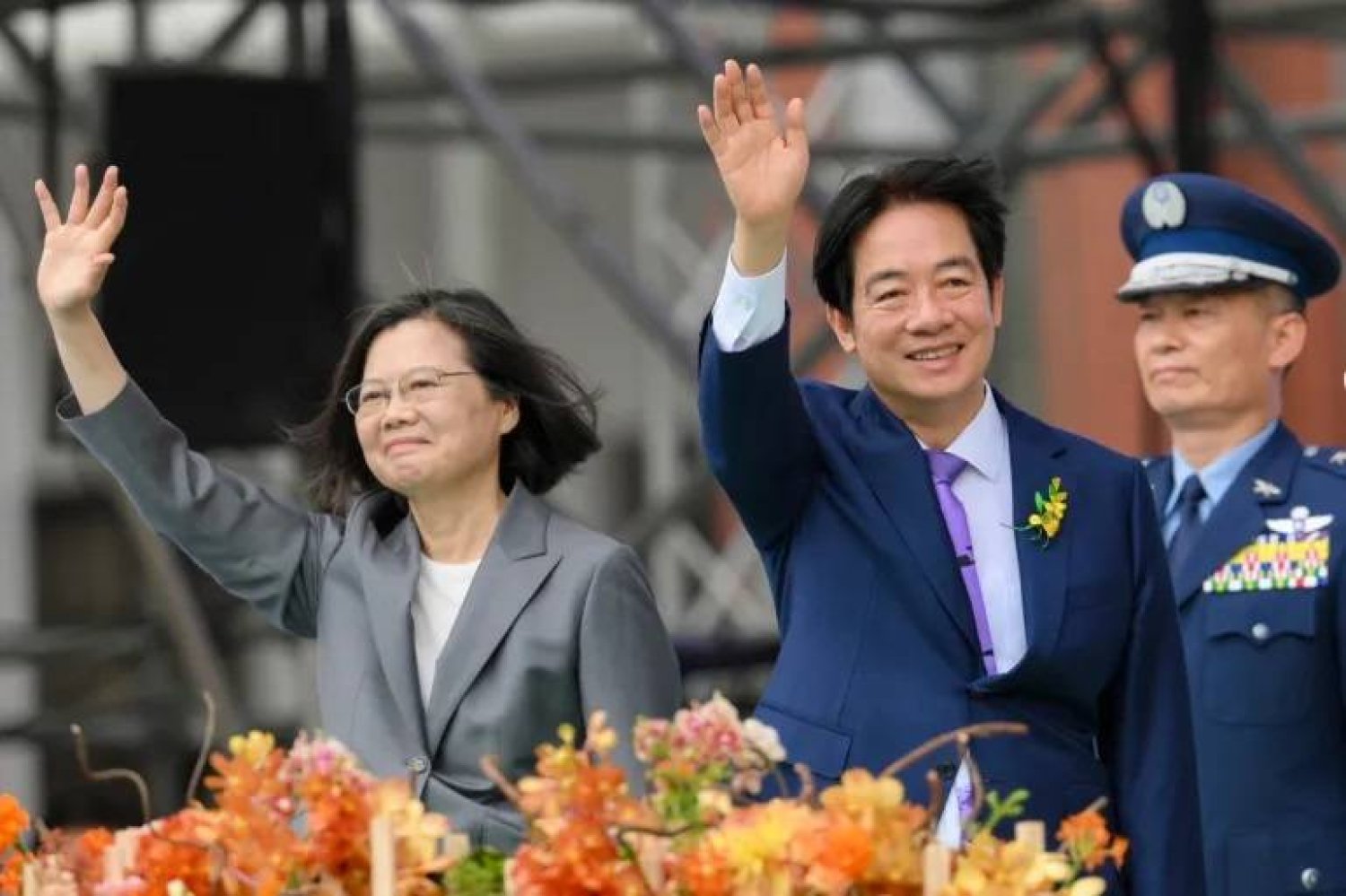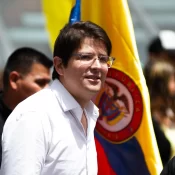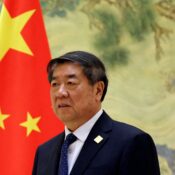
Taiwan’s newly elected president demands that China cease its threats
In his inaugural speech, Taiwan President Lai Ching-te encouraged Beijing to respect the decision made by the people of Taiwan and to cease threatening Taiwan militarily and politically. He stated that peace is the only option.
In response, China said that Lai had sent “dangerous signals” intended to jeopardize stability and peace on the other side of the Taiwan Strait.
Speaking to a gathering outside the downtown Taipei presidential office built during the Japanese colonial era, Lai reiterated her plea for negotiations with China, which sees the self-proclaimed democratic island as its own territory and has never refrained from using force to subjugate it.
“I also want to urge China to stop intimidating Taiwan politically and militarily, and to take on the global responsibility with Taiwan to work hard on maintaining peace and stability across the Taiwan Strait and in the region, to ensure the world is without the fear of war breaking out,” he stated. Additionally, we want to make it known to the world that Taiwan will not compromise on freedom and democracy. For long-term peace and stability, prosperity is our aim and peace is the only viable choice.”
Lai’s remarks “fully exposed his true nature as a Taiwan independence worker,” according to China’s Taiwan Affairs Office, which also stated that the situation in the Taiwan Strait was “complicated and grim.”
It declared in a statement that “peace in the Taiwan Strait is incompatible with Taiwan independence.” “No matter how the situation on the island changes, no matter who is in power, it will not change the fact that the two sides belong to the same China.”
China had referred to Lai as a “separatist” on multiple occasions, threatening war in the lead-up to his January election.
Since Lai, 64, who is better known by his English name, William, won the election, Taiwan has been under pressure from China, which includes frequent air force and navy operations near the island.
After serving as Tsai Ing-wen’s vice president for the previous four years, Lai assumed the presidency and stated that Taiwan must demonstrate its resolve to protect itself and that people need to be serious about the threat.
“Fellow citizens, we have the ideal to pursue peace, but we must not have illusions,” he stated. “Before China gives up using force to invade Taiwan, citizens must understand this: Even if we accept all of China’s claims and give up our sovereignty, China’s ambition to annex Taiwan will not disappear.”
After restating that the People’s Republic of China and the Republic of China, which is Taiwan’s official name, are “not subordinate to each other,” Lai was met with thunderous acclaim. Tsai had adopted the same stance.
The Taiwanese defense ministry reported that six Chinese aircraft had crossed the median line across the Taiwan Strait, which used to be an unofficial border but that China claims it does not recognize, in its daily report about Chinese military activities in the preceding 24 hours.
Based on a map provided by the ministry, at least one of the aircraft passed within 43 nautical miles (80 km) of Keelung, a port city in northern Taiwan. In recent years, these intrusions have become comparatively frequent.
Former US officials that President Joe Biden sent, legislators from Japan, Germany, and Canada, as well as representatives from some of the 12 nations who still have formal diplomatic relations with Taiwan—including Santiago Pena, the president of Paraguay—are present at the ceremony.
In his congratulations to Lai, U.S. Secretary of State Antony Blinken stated that the country was eager to collaborate with him “to advance our shared interests and values, deepen our longstanding unofficial relationship, and maintain peace and stability across the Taiwan Strait”.
All Categories
Recent Posts
Tags
+13162306000
zoneyetu@yahoo.com



